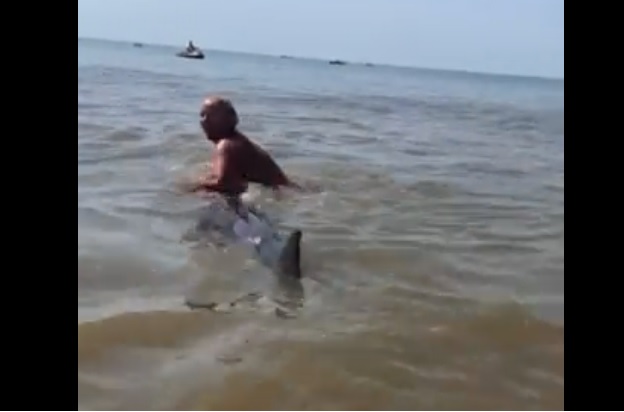Human action is the main cause of strandings of marine mammals in Yucatan and fishing nets are the greatest deadly agent for these animals, so it is recommended to replace them with lower-impact techniques.
In Yucatán, the causes of stranding of marine mammals on beaches are very well-identified: it can be due to illness, old age, or injuries, says Raúl Díaz Gamboa, coordinator of the Yucatán Marine Mammal Research and Conservation Program (Picmmy), established since 2012 at the Autonomous University of Yucatán (Uady).
In the case of hatchlings, most of them get stuck and drown due to their lack of skill in swimming in low water, indicates Díaz Gamboa, doctor in Marine Sciences from the National Polytechnic Institute (IPN).
But what affects these animals the most is the action of man, he highlights, whether due to contamination, since in several cases in the necropsy, it was discovered that the animals ingested garbage; due to collision with a vessel or hunting.
Furthermore, the most frequent cause of death of marine mammals in Yucatan is when the animals get stuck in fishing nets, he highlights.
This represents 35% of the deaths; Although it is not intentional, it has already caused the death of dozens of mammals, he emphasizes.
Given this, the researcher proposes that authorities look for a way to implement other fishing techniques that can cause less impact on marine life that is different from what they want to capture.
In an interview, Dr. Díaz Gamboa reports that Picmmy has already documented 111 cases of strandings of marine mammals, with a total of 143 animals, on the coasts of Yucatán from 2013 to 2023.
The most recent one recorded by the Picmmy occurred in mid-November on the beaches of Sisal, where a dwarf sperm whale landed, now lifeless, he specifies.
The difference between the number of cases and the specimens, he states, is because sometimes cases of multiple strandings occur.
For example, in 2016 they reported to us the stranding of eight dolphins in the same place; In 2021, three dolphins stranded together in Chuburná Puerto and six more landed together in Dzilam de Bravo, he details.
Dr. Díaz Gamboa admits that marine mammals have been stranded in Yucatán before 2013, but, he says, there is no scientific record before the emergence of Picmmy, in which students from the Uady Bachelor’s Degree in Marine Biology participate and marine biologists who graduated from it.
The researcher reports that Celestún is the Yucatan port with the largest number of documented marine mammal strandings, 15 in total, five of them occurring this year.
TYT Newsroom


